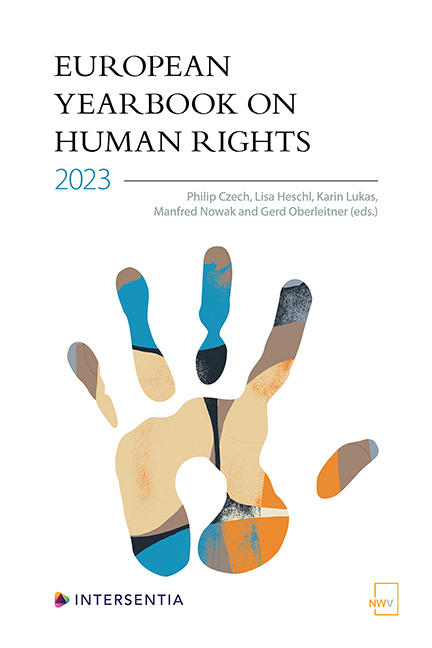Gerd Oberleitner (ed.): Research Handbook on International Law and Human Security
Published online by Cambridge University Press: 04 April 2024
Summary
‘Human security is a child who did not die, a disease that did not spread, a job that was not cut, an ethnic tension that did not explode in violence, a dissident who was not silenced.’ – these are the opening words of Gerd Oberleitner, quoting the famous 1994 UNDP Human Development Report, introducing ‘human security’ as a new approach to thinking about security in a human-centric perspective. Nearly 30 years later, Oberleitner, in his Research Handbook on International Law and Human Security, tries to compile and embrace the evolution and application of the concept of ‘human security’ from an international law perspective. ‘Human secuarity’, as a political leitmotif, has been primarily researched from the perspective of political science or international relations, yet international law has been quite reluctant to approach it from a legal dimension, and to contribute to understanding its normative underpinnings and the interactions between international law and ‘human security’. Oberleitner, thus, aims to close this gap, bringing together a selection of academics who can be considered leading voices in their respective fields, to ‘examine the preconditions for and consequences of applying human security to international legal thinking and practice, provide evidence of the traces which human security has left in international law and propose a future international law in which human security is central to the law's purpose’. This ambitious objective could not be more timely: international law is in a dire predicament, facing a general backlash against a rule-based international order, with states retreating from multilateralism and rejecting the rule of (international) law. At the same time, global challenges and crises, such as the COVID-19 pandemic or climate change, also illustrate the need for increased international cooperation in the field of law. Today's challenges most likely require not less but more international law, in order to be able to ensure the well-being and future of humankind. The premise of the Research Handbook on International Law and Human Security is, thus, to make human security once again an intrinsic part of international law-making, to ensure the relevance of international law in addressing global challenges with greater legitimacy, and to place the individual once again at the centre of responses to multidimensional threats and risks.
- Type
- Chapter
- Information
- European Yearbook on Human Rights 2023 , pp. 673 - 676Publisher: IntersentiaPrint publication year: 2023



